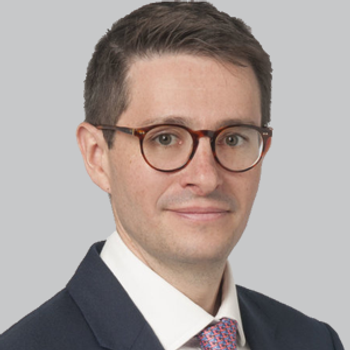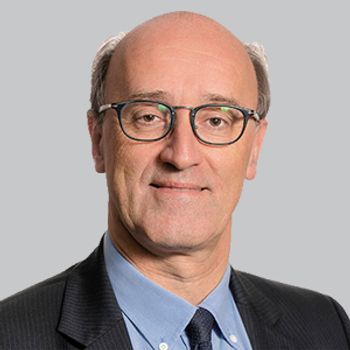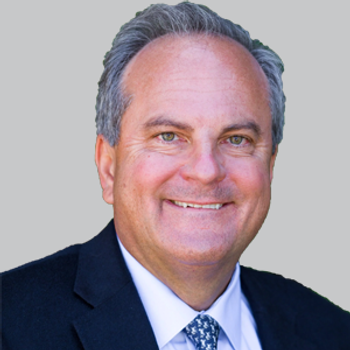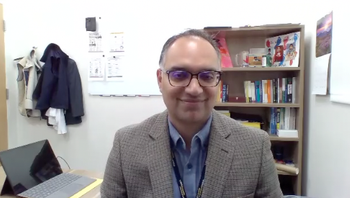
The president of the LGMD Foundation discussed raising awareness, strengthening advocacy, and the lived experience of navigating limb-girdle muscular dystrophy.

Marco Meglio, Assistant Managing Editor for NeurologyLive, has been with the team since October 2019. Follow him on Twitter @marcomeglio1 or email him at [email protected]

The president of the LGMD Foundation discussed raising awareness, strengthening advocacy, and the lived experience of navigating limb-girdle muscular dystrophy.

Melissa Spencer, PhD, discussed the rare and complex landscape of limb girdle muscular dystrophy, highlighting research challenges, safety considerations in gene therapy, and the need for natural history studies and biomarkers.

Kelly Brazzo, founder and chief executive officer of the CureLGMD2i Foundation, provided commentary on LGMD Awareness Day, focusing on subtype-specific advocacy, genetic testing, and platform development leading to approved therapies.

Test your neurology knowledge with NeurologyLive®'s weekly quiz series, featuring questions on a variety of clinical and historical neurology topics. This week's topic is on the ECTRIMS Congress.

New research highlights the effectiveness of paramagnetic rim lesions as a key biomarker for diagnosing multiple sclerosis, enhancing diagnostic accuracy.

New data reveal vidofludimus calcium shows promise in slowing disability progression in primary progressive multiple sclerosis, warranting further trials.

MIL62 shows promising results in reducing relapse rates and disability progression in NMOSD, highlighting its potential as a groundbreaking treatment.

Semaglutide demonstrates superior cardiovascular benefits over dulaglutide, reducing heart attack and stroke risks in type 2 diabetes patients.

Tiziana Life Sciences presents the design a phase 2a trial of nasal foralumab for treating nonactive secondary progressive MS at ECTRIMS 2025.

UniQure's AMT-130 shows promise in slowing Huntington disease progression, paving the way for a potential breakthrough treatment by 2026.

Tolebrutinib shows promise in improving quality of life for patients with nonrelapsing secondary progressive multiple sclerosis, according to recent trial findings.

Biogen plans to resubmit its application for a higher dose of nusinersen after receiving FDA feedback, aiming to enhance SMA treatment efficacy.

Ofatumumab shows promising efficacy in treating neuromyelitis optica spectrum disorder, significantly reducing relapse rates and improving patient outcomes.

The vice president of scientific engagement at the Alzheimer’s Association discussed the organization’s recently published first guidelines on blood-based biomarkers, highlighting accuracy, clinical use, and patient considerations.

Ionis reveals promising trial results for zilganersen, a potential first treatment for Alexander disease, aiming to transform patient care.

Grace Therapeutics reveals promising results for GTx-104, an innovative IV treatment for aSAH, potentially transforming patient care in neurocritical settings.

Dionne Morgan, MD, a sleep medicine physician at Baptist Health Miami Cardiac & Vascular Institute, provided commentary on World Narcolepsy Day, highlighting challenges in diagnosis and treatment, evolution in therapeutics, and combating comorbidities.

Tolebrutinib, a promising BTK inhibitor for nonrelapsing MS, faces a delayed FDA review, highlighting its potential in treating neuroinflammation.

The director of NYU Langone’s Comprehensive Epilepsy Center highlighted recent progress in epilepsy care, spanning new therapies, gene-based approaches, mortality awareness, and improved pregnancy management. [WATCH TIME: 3 minutes]

Test your neurology knowledge with NeurologyLive®'s weekly quiz series, featuring questions on a variety of clinical and historical neurology topics. This week's topic is on care of trigeminal neuralgia.

The founder of the Stuttering Treatment and Research Society (STARS) discussed the unmet needs in stuttering care, current management strategies, and the mission of STARS to drive education, collaboration, and treatment development.

SKY-0515 shows promising results in reducing mutant huntingtin protein in Huntington disease patients, paving the way for transformative treatment options.

A groundbreaking study reveals the connection between GLP-1 hormones and brain inflammation in neuromyelitis optica spectrum disorder, suggesting new treatment avenues.

ShiraTronics reveals promising 12-month results from its neuromodulation device, showing significant migraine relief and improved quality of life for chronic migraine patients.

New research highlights daridorexant's effectiveness in improving sleep for women experiencing insomnia during menopause, showcasing significant benefits in sleep quality.

A recent trial reveals perispinal etanercept is safe for chronic stroke patients but shows no significant efficacy compared with placebo.

The vice chair of neurology at West Virginia University outlined key challenges in academic neurology and reflected on the evolving responsibilities of vice chairs in supporting departmental growth and leadership. [WATCH TIME: 3 minutes]

Novo Nordisk's semaglutide gains EU approval as the first oral GLP-1 RA to reduce cardiovascular risks in type 2 diabetes patients.

Avidity's del-zota shows promising results in reversing disease progression in Duchenne muscular dystrophy, paving the way for potential FDA approval.

Test your neurology knowledge with NeurologyLive®'s weekly quiz series, featuring questions on a variety of clinical and historical neurology topics. This week's topic is on pre-surgical evaluation tools for epilepsy.